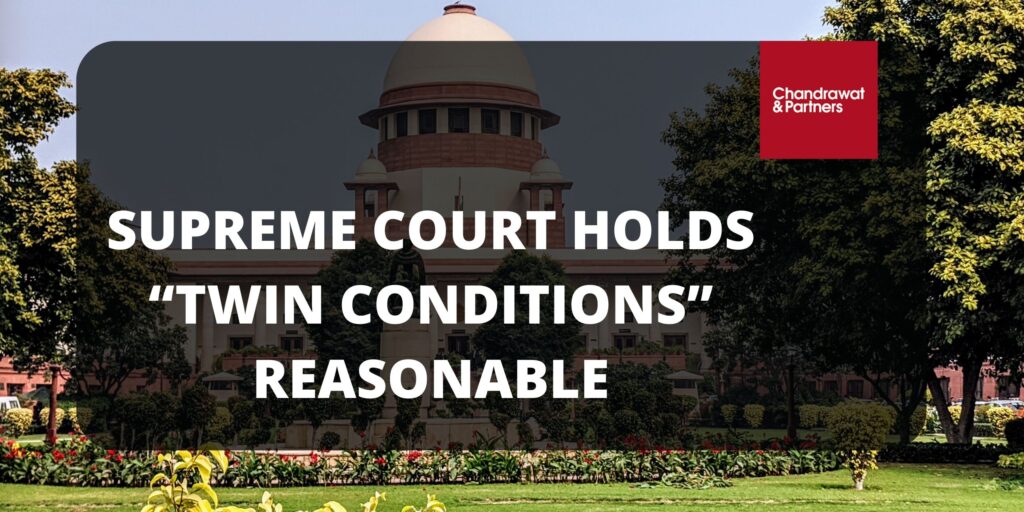Twin conditions of PMLA Section 45 are reasonable to combat the menace of money-laundering: Supreme Court holds “twin conditions” under Section 45 of PMLA reasonable
Abstract
The Supreme Court observed that the provisions in Section 45 of the 2002 Prevention of Money Laundering Act, as amended in 2018, are reasonable and have a direct nexus with the 2002 Act’s purposes and objectives for combating the menace of money-laundering with transnational consequences, including impacting financial systems and the sovereignty and integrity of countries.
The bench added that the basic principles and strictures of Section 45 may apply regardless of the nature of the proceedings, including proceedings under Section 438 of the Penal Code or even invoking the jurisdiction of the Constitutional Courts.
Introduction
Section 45(2) pre-amendment and post-amendment in 2018 – The two conditions under Section 45 are: (i) the public prosecutor is given the opportunity to object to the bail application and (ii) there are reasonable grounds to believe that he is not guilty of such criminal offense and that he is unlikely to commit any crime while out on bail.
At present, as amended in 2018, the relevant part of section 45(2) reads as follows:
Notwithstanding anything contained in the Criminal Procedure Code 1973 (2 of 1974), a person charged with an offense [under this Act] shall not be released on bail or on his own bail, unless;
- the public prosecutor has been given an opportunity to object to the application for such release; and
- (ii) if the prosecutor opposes the motion, the court is satisfied that there are reasonable grounds to believe that he is not guilty of such offense and that he is not likely to commit any offense while on bail.
Case Laws
Prior to the 2018 amendment, instead of “under this Act” was “punishable with imprisonment for a term exceeding three years under Part A of the Schedule”. In Nikesh Tarachand Shah Vs. Union of India (2018) 11 SCC 1, the Supreme Court declared such conditions unconstitutional as they violate Articles 14 and 21 of the Constitution.
The petitioners relied on the observations in State of Manipur & Ors. vs. Suraj Kumar Okram & Ors 2022 (SC) 112 that as a result of the court declaring the Act to be unconstitutional, it is completely struck down as if it had never been passed.
Observation by the court
“We believe that the provision in the form of Section 45 of the 2002 Act, as amended by the 2018 amendment, is adequate and directly related to the aims and objectives of the 2002 Act to achieve in the fight against money menace. laundry with transnational implications, including the impact on financial systems and the sovereignty and integrity of countries,” the court said.
The court also observed that money laundering is one of the heinous crimes that not only affects the social and economic fabric of the nation but also tends to promote other heinous crimes such as terrorism, offences related to narcotic and psychotropic substances (NDPS), and so on, and it is a well-known fact that unaccounted money transfers are used by the international criminal networks.
“We do not find merit in the challenge to Section 44 being arbitrary or unconstitutional,” the court said.
The court did not agree with an argument that money laundering is a less heinous offence than terrorism, which is dealt with under TADA, or that there is no compelling state interest in dealing with money laundering. Read the full judgement by clicking here.
For more information or queries, please email us at
enquiries@chandrawatpartners.com




